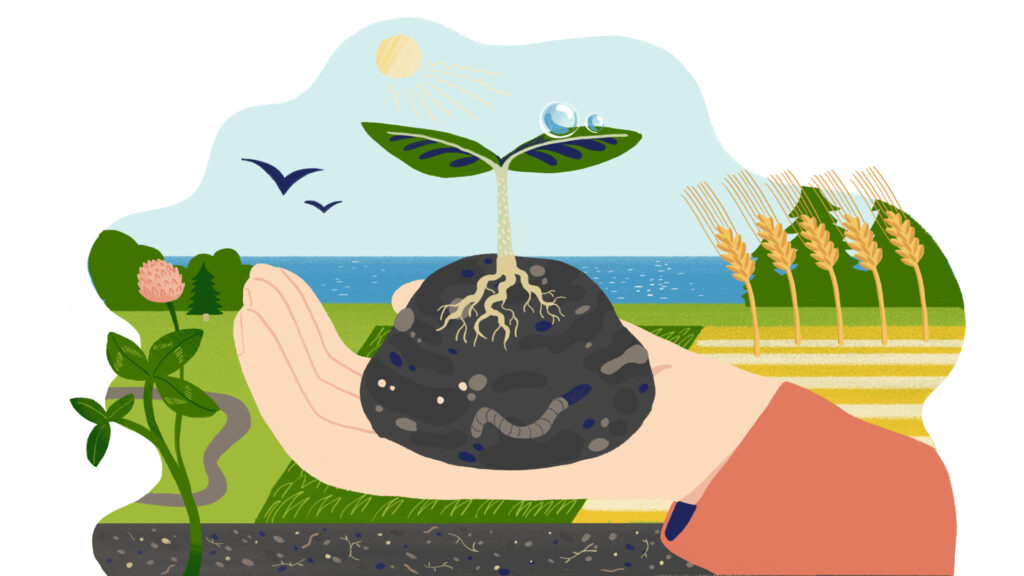You must log in or register to do the quizzes, complete the course and receive a certificate.
1.2. Why do we need change?
Before continuing, think about the following questions:
- What sustainability issues have you encountered in connection with food production?
- What kinds of solutions are being offered to these issues?
- Are the solutions to different issues in conflict with each other? How do they tally with financial considerations?
Click on the headings below to read about the issues that regenerative farming is trying to address. Check if there is anything that you have been thinking about as well.
How much can our planet take?
The limits of our planet’s carrying capacity are being put to the test in many ways. How can we produce food in an ecologically sustainable manner so that our planet remains liveable for generations to come? How do our food production choices impact the environment?
Scientists at the Stockholm Resilience Centre in Sweden are studying biosphere sustainability phenomena, and have identified nine important factors that define the limits of our planet’s carrying capacity. They are called planetary boundaries.

Source: Rockström et al. 2023
Is farming financially viable?
Farmers’ livelihoods have long been affected by agriculture’s low level of profitability. And climate change is not making an already difficult situation any easier: floods, drought and heavy rains are leading to increasingly uncertain harvests. How can we produce a broad range of food in a profitable manner, both now and in the future?
Are human rights realised at all stages of food production?
Social sustainability is also an issue in food production. Population growth is leading to a growing demand for food, and this is also posing challenges for food production. How do we get enough products on store shelves whilst also ensuring that we can reliably trace their origins and supply chains?
Did you know that regenerative farming can address many of the sustainability challenges we are facing in food production?
Most food production is dependent on the soil. 95 per cent of the food eaten by humans and animals is grown in fields or allotments. So farming really does matter. Watch this video to see how regenerative farming provides solutions to sustainability issues in the food system in terms of the environment, economy, security of supply and fairness. Be prepared to answer questions about the video after you have watched it.
How can farming help to address sustainability problems? The answer is under your feet. A farmer’s most important tool – or, in actual fact, their partner – is the soil. In regenerative farming, it is the farmer’s job to continuously maintain and improve the condition of the soil. This will enable a field to produce the best yield. Healthy soil is also more effective at carrying out its critical environmental tasks, such as carbon sequestration, maintaining biodiversity and reducing nutrient runoffs from fields.
Regenerative farming revolves around caring for – and constantly improving – the wellbeing of the soil. All of us benefit from this: nature, farmers and everyone who needs a broad range of food. Pretty simple in a way, isn’t it? It’s now time to complete the exercise below and recap what you have learnt.
